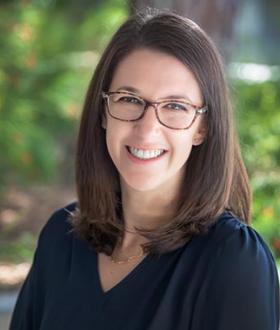How Universal Pre-K Impacts Jewish Schools
By Carly Rosenstein
Early childhood education has long been known as a key entry point into Jewish education and the Jewish community. During these early years children are exposed to Jewish tradition and values that last throughout their lives and families build strong friendships that keep them connected to their synagogue or Jewish community. In Los Angeles, 48 BJE-affiliated Jewish early childhood centers (ECCs) serve students from 6 weeks to 5 years old, offering rich, developmentally appropriate classrooms to support our youngest learners.
In the 23-24 school year, LAUSD opened Universal Transitional Kindergarten (UTK) to all 4-year-olds. Families who had been sending their children to Jewish ECCs in Los Angeles were now faced with a choice of whether to keep their children in their private Jewish early childhood center or to move their child to a free program at a public school. Unfortunately, between the 2022-2023 school year to the 2023-2024 school year, we have seen a 22% decrease in 4+ year old enrollment in our BJE-affiliated schools, with some schools feeling a more significant decline than others. We know anecdotally that we will probably record an even bigger decrease in the 2024-2025 school year as families become more comfortable and enticed by the free public school offerings.
In response to the decline in 4+ year olds, our BJE-affiliated ECCs have been looking for strategies to help increase their enrollment and engage more families in Jewish education. One response has been to lower the earliest enrollment age from the traditional 2 years old to 18 months. This lower age bracket was relatively easy to do with the licensing body that oversees ECCs in California these past few years (unfortunately they have now made it significantly more difficult). As of the 2022-2023 school year, 42% of the BJE-affiliated ECCs served children between the ages of 18-23 months. By 2025-2026, we expect to have more than 65% of ECCs with a capacity for this age group.
While adding this younger age group does help increase overall enrollment at our schools, it also comes with many challenges. Schools need to find designated indoor and outdoor space, as required for licensing, that can serve this younger population. They also need to recruit and/or retrain teachers to work with a younger population.
BJE has been monitoring this trend and implemented some programs to support Jewish early childhood centers that are serving younger children. BJE’s Early Childhood Directors’ Network hosted two events this year. The first included a specialist from Community Care Licensing’s Centralized Application Bureau to share the new procedures for adding a new age group to an ECC’s license. The network also hosted a follow-up Zoom session to explore best practices in opening and supporting classrooms for 18–24-month-olds which included inviting veteran educators to share their personal experiences. Additionally, this year, at BJE’s Bebe Feuerstein Simon Early Childhood Institute, BJE will be offering a specialized track for educators who support children under 2 years old to learn best practices and collaborate with one another.
With UTK becoming more popular and commonplace among those in our Jewish community BJE continues to track the trend of families choosing UTK over BJE-affiliated Jewish ECCs.
BJE’s concern extends beyond decreased enrollment numbers among that age group to the trajectory for our children in their Jewish educational journey. As we set out to secure a vibrant Jewish future, we must continue to ask ourselves what will motivate children who graduate from our Jewish ECCs earlier to stay connected to the Jewish community and what role can we play to ensure that they do so.

